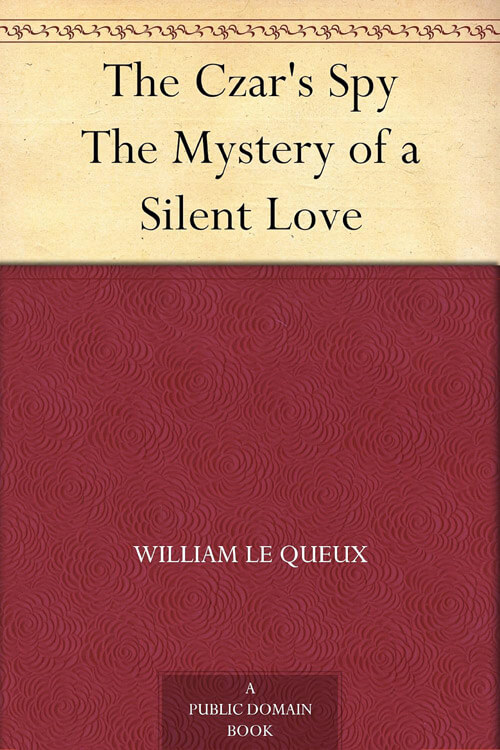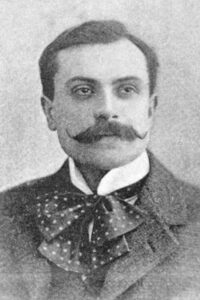
The Czar’s Spy The Mystery of a Silent Love
My old friend Frank Hutcheson, His Britannic Majesty’s Vice-Consul at the port of Leghorn, was away on leave in England, his duties being relegated to young Bertram Cavendish, the pro-Consul. The latter, however, had gone down with a nasty touch of malaria, which he had picked up in the deadly Maremma, and I, as the only other Englishman in Leghorn, had been asked by the Consul-General in Florence to act as pro-Consul until Hutcheson’s return.
It was mid-July, and the weather was blazing in the glaring, sun-blanched Mediterranean town. If you know Leghorn, you probably know the Consulate with its black and yellow escutcheon outside, a large, handsome suite of huge, airy offices facing the cathedral, and overlooking the principal piazza, which is as big as Trafalgar Square, and much more picturesque. The legend painted upon the door, “Office hours, 10 to 3,” and the green persiennes closed against the scorching sun give one the idea of an easy appointment, but such is certainly not the case for a Consul’s life at a port of discharge must necessarily be a very active one, and his duties never-ending. Carducci had left me to the correspondence for half an hour or so, and I confess I was in no mood to write replies in that oppressive heat. Therefore I sat at the Consul’s big table, smoking a cigarette and stretched lazily in my friend’s chair, resolving to escape to the cool of England as soon as he returned in the following week.
Italy has all been very well for nine months in the year, but Leghorn is no place for the Englishman in mid-July. My thoughts were wandering toward the English lakes and a bit of grouse-shooting with my uncle up in Scotland when the faithful Francesco re-entered, saying…
Read or download Book
William le Queux
William Tufnell Le Queux (2 July 1864 – 13 October 1927) was an Anglo-French journalist and writer.
Biography
He was also a diplomat (honorary consul for San Marino), a traveller (in Europe, the Balkans, and North Africa), a flying buff who officiated at the first British air meeting at Doncaster in 1909, and a wireless pioneer who broadcast music from his station long before radio was generally available; his claims regarding his own abilities and exploits, however, were usually exaggerated. His best-known works are the anti-French and anti-Russian invasion fantasy The Great War in England in 1897 (1894) and the anti-German invasion fantasy The Invasion of 1910 (1906), becoming a bestseller.
Le Queux was born in London. His father was a French draper’s assistant, and his mother was English. He was educated in Europe and studied art under Ignazio (or Ignace) Spiridon in Paris. As a young man, he carried out a foot tour of Europe before supporting himself by writing for French newspapers. In the late 1880s, he returned to London, where he edited the magazines Gossip and Piccadilly before joining the staff of The Globe as a parliamentary reporter in 1891. In 1893, he abandoned journalism to concentrate on writing and travelling. His partial French ancestry did not prevent him from depicting France and the French as the villains in works of the 1890s, though later he assigned this role to Germany. Le Queux mainly wrote in the genres of Romance, mystery, thriller, and espionage, particularly in the years leading up to World War I, when his partnership with British publishing magnate Lord Northcliffe led to the serialized publication and intensive publicizing (including actors dressed as German soldiers walking along Regent Street) of pulp-fiction spy stories and invasion literature such as The Invasion of 1910, The Poisoned Bullet, and Spies of the Kaiser.
These works were a common phenomenon in pre-World War I Europe, involving fictionalized stories of possible invasion or infiltration by foreign powers; Le Queux’s speciality, much appreciated by Northcliffe, was the German invasion of Britain. He was also the original editor of Lord Northcliffe’s War of the Nations.






